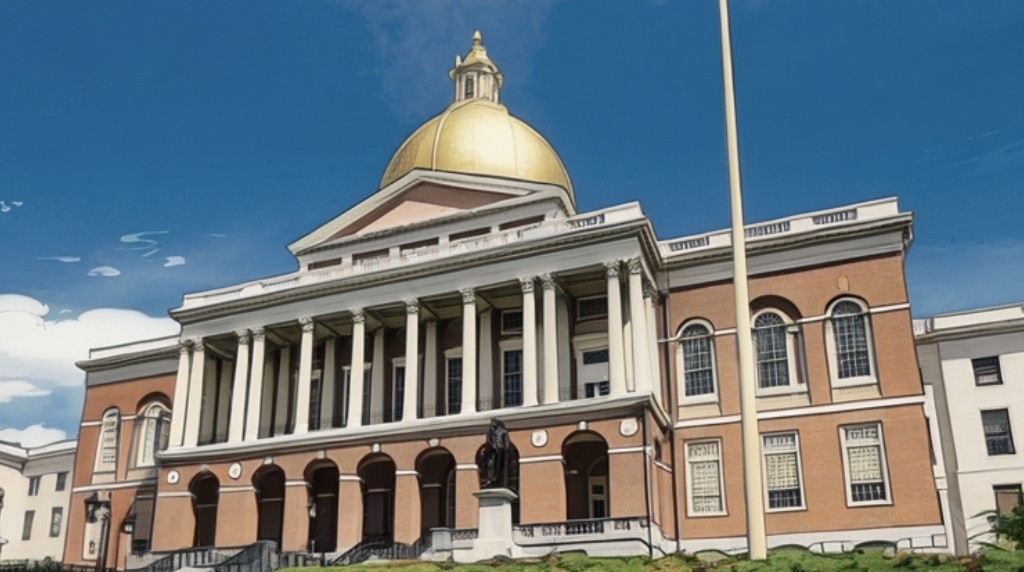Massachusetts Could Become Eighth State with Legal Online Casinos
As many states grapple with expansion of gambling, Massachusetts lawmakers are pondering two bills that could introduce online casinos to this state. If it happens, Massachusetts will be only the eighth state with an active, legal iGaming marketplace.

State of Massachusetts to legalize online casinos. © Boone Digital
Key Facts:
- Two bills, one in each branch of the state legislature, would legalize online casinos
- Only seven states have legal online casinos, including Connecticut and New Jersey
- DraftKings says as much as $275 million in tax revenue could be generated from iGaming in Massachusetts
This week, lawmakers heard testimony outlining possible online casino scenarios in a Massachusetts Joint Committee on Consumer Protection and Professional Licensure session. If this committee reports favorably on bills in either house on iGaming, a future vote could occur this year.
State Senator Paul R. Feeney (a Democrat representing Bristol and Norfolk) has sponsored Senate Bill 235. A counterpart, State Representative Daniel Cahill (Democrat, 10th Essex district) has authored House Bill 332, which, like SB 235, would legalize iGaming.
Online casinos are commercial apps and websites that offer slots play and casino-style table games like roulette, baccarat, and possibly even poker. If either bill is enacted into law, the Massachusetts Gaming Commission would be authorized to regulate and license online casino operators.
That agency currently oversees sports betting, retail casinos, racetracks, and the state lottery. The MGC consists of five members. It is also responsible for supervising and investigating gaming law violations and protecting consumers.
Since Rhode Island implemented its legal online casinos in March of 2024, no new state has legalized or launched iGaming. Many states have been grappling with the issue of expanding gambling, as many commercial operators, regulated and unregulated, have flooded markets across the United States.
The MGC has earned a reputation for being diligent but fair in dealing with online gaming in the commonwealth. Massachusetts eagerly launched legal online sportsbooks before many other states.
Regulators have also implemented stringent rules on gaming advertising in Massachusetts. Other states have used the Massachusetts rules as a model regarding responsible gambling and gaming ads.
Bills Call for Licenses Tied to Three MA Casinos
Each of the bills that would make iGaming legal in Massachusetts calls for licensure procedures that would be tied to the three retail casinos in this state: Encore Boston Harbor, MGM Springfield, and Plainridge Park Casino.
Each of the commercial casinos could, under the House and Senate bills, team up with as many as two iGaming operators. The Senate bill would permit licensure for as many as four untethered operators.
“Authorized games include but are not limited to poker, blackjack, craps, roulette, cards, slots, and any other games or those substantially equivalent typically offered at a casino, and any other game approved by the Commission”, says the language of SB 235.
According to minutes from the MA Joint Committee on Consumer Protection and Professional Licensure meeting, a representative of DraftKings Casino gave testimony.
In addition, a spokesperson for the Sports Betting Alliance also gave testimony. That organization counts members such as bet365, BetMGM, DraftKings, Fanatics, and FanDuel, all of which have online casino products.
David Prestwood of DraftKings estimated that Massachusetts could receive as much as $275 million in tax revenue annually, assuming a tax rate of 20% on online casino operators. That rate is slightly higher than the national average, but not by much.
Given the rate of wins for the “house” in online casino gaming, revenue for that activity is much higher than other forms of gambling. Sportsbooks, for example, gather far less revenue and generate much less taxes for a state.

 Book of Dead GO Collect by Play’n GO: New Slot Preview
Book of Dead GO Collect by Play’n GO: New Slot Preview
 Hot Ross by Hacksaw Gaming: New Slot Release Preview
Hot Ross by Hacksaw Gaming: New Slot Release Preview
 $1.6B Super Bowl Trading Sparks Prediction Market Debate
$1.6B Super Bowl Trading Sparks Prediction Market Debate